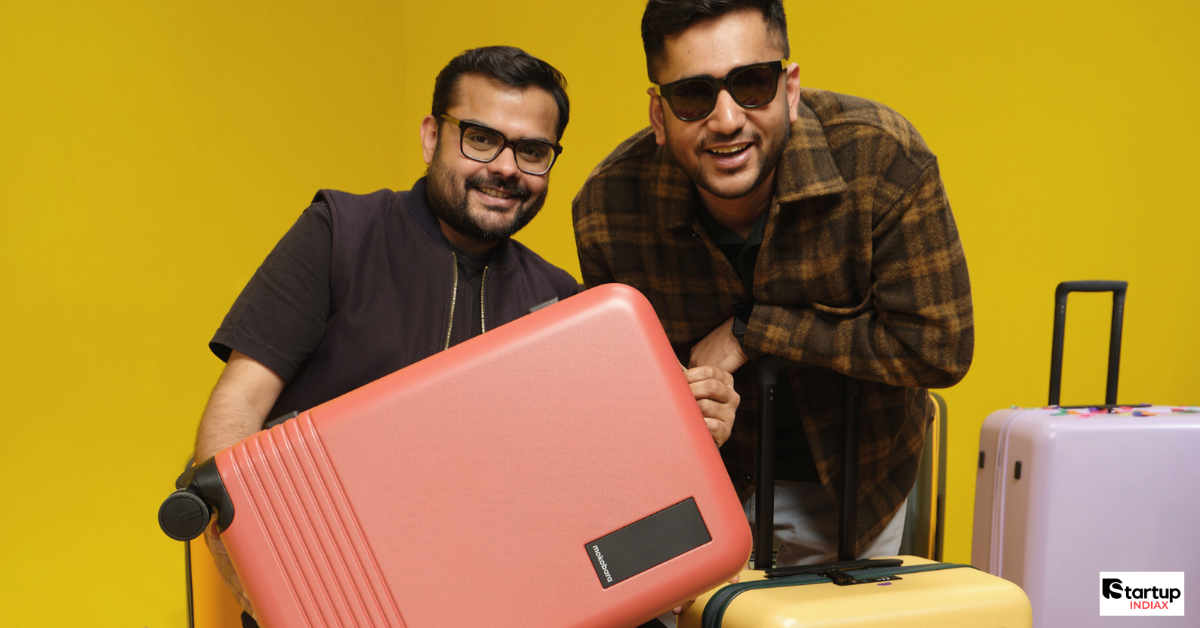33 Rejections didn’t deter Mokobara’s founders, Sujayath Ali and Navin Parwal, from building a ₹117 crore Indian luggage brand by FY24. This Startup INDIAX article explores their 18-month field-testing journey, innovative D2C strategies, and bold branding that transformed setbacks into success. Entrepreneurs will learn how to overcome rejection, prioritize quality, and leverage digital channels to create a standout brand in a competitive market.
Table of Contents
Why Did Mokobara Face 33 Rejections?
Mokobara’s journey began with a bold vision: to create stylish, durable, and affordable luggage for India’s modern travelers. However, their pitch faced 33 rejections from investors skeptical about entering a competitive market dominated by brands like Samsonite and VIP.
What Challenges Did the Founders Encounter Early On?
Sujayath Ali, a former Myntra executive, and Navin Parwal, a supply chain expert, lacked direct experience in luggage manufacturing. Investors questioned their ability to compete in a ₹12,000 crore Indian luggage market growing at a 10% CAGR (Statista, 2023). High production costs, complex supply chains, and low brand recognition were red flags.
Despite this, the duo persisted. “Every rejection taught us to refine our pitch and product,” Ali shared in a 2024 Startup INDIAX interview. They used feedback to focus on customer pain points like durability and aesthetics.
How Did 18 Months of Field Testing Shape Mokobara?
For 18 months, Mokobara’s founders tested prototypes under real-world conditions, from monsoon-soaked streets to overcrowded airports. This rigorous process set them apart in a market flooded with generic designs.
What Made Their Testing Process Unique?
Unlike competitors, Mokobara prioritized user feedback. They distributed 500+ prototypes to travelers, collecting data on zipper strength, wheel durability, and handle comfort. Over 70% of testers reported issues with existing luggage brands, per a 2022 Mokobara survey.
The founders iterated 20+ designs, ensuring waterproof materials and reinforced corners. “We didn’t want to launch until it was perfect,” Parwal noted. This obsession with quality built trust and laid the foundation for their ₹117 crore revenue in FY24
How Did Mokobara Build a ₹117 Cr Brand?
Mokobara launched in 2020, leveraging direct-to-consumer (D2C) channels and social media to bypass traditional retail. By FY24, they clocked ₹117 crore in revenue, a 120% YoY growth (Economic Times, 2024).
What Strategies Drove Their Revenue Growth?
- D2C Model: Selling online via their website and platforms like Amazon reduced costs, allowing competitive pricing (₹5,000–₹12,000 per bag).
- Influencer Marketing: Collaborations with 200+ Instagram travel influencers boosted brand visibility. Posts tagged #Mokobara garnered 1.2 million impressions in 2023.
- Sustainability Focus: Eco-friendly materials like recycled polyester appealed to 65% of Gen Z consumers, per a 2023 Nielsen report.
How Did They Stand Out in the Luggage Market?
Mokobara’s vibrant designs and lifetime warranties differentiated them. Their “Monsoon Test” campaign, showcasing bags surviving 48-hour rain exposure, went viral with 3 million views. Strategic partnerships with coworking spaces like WeWork India offered pop-up stores, driving 15% of offline sales.
“Mokobara redefined premium luggage for young Indians,” says Ankit Gupta, a retail analyst. Their focus on aesthetics and durability resonated with 25–35-year-olds, who made up 80% of their customer base.
What Lessons Can Startups Learn from Mokobara?
Mokobara’s story offers a blueprint for entrepreneurs facing rejection or market saturation:
- Embrace Feedback: Use rejections to refine your product and strategy.
- Prioritize Quality: Rigorous testing builds customer trust and loyalty.
- Leverage Digital Channels: D2C and social media can level the playing field.
- Differentiate Boldly: Unique designs and campaigns cut through noise.
Startup INDIAX highlights Mokobara as a case study for resilience. Their journey proves that persistence and innovation can turn underdogs into market leaders.
Conclusion: Mokobara’s Blueprint for Success
From 33 rejections to a ₹117 crore victory, Mokobara’s story inspires entrepreneurs to push past setbacks. Their 18 months of field testing and customer-centric approach built an Indian luggage brand that rivals global giants. Startup INDIAX invites you to share your thoughts in the comments, explore more startup stories on our platform, or connect with us on X to discuss your entrepreneurial journey!

